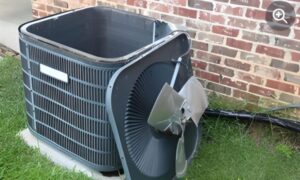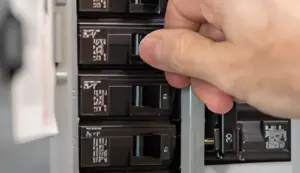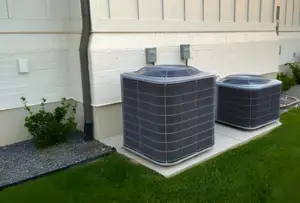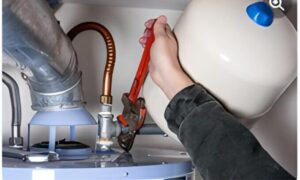Ice machines are a vital component of many businesses, providing a steady supply of ice for drinks, food storage, and display. However, the importance of regular maintenance for these machines is often overlooked, and the consequences can be costly.
In this article, we will shed light on the potential risks posed by dirty ice machines, the hefty fines associated with non-compliance, and the crucial role that regular maintenance plays in ensuring food safety and preventing breakdowns.
By the end of this discussion, you will be equipped with the knowledge to protect your business, your customers, and your bottom line.
The Importance of Regular Maintenance
Regular maintenance is of utmost importance in maintaining the optimal performance and longevity of refrigeration equipment. Neglecting regular maintenance tasks can lead to a decrease in efficiency, increased energy consumption, and even system failure.
To ensure the equipment operates at its best, it is crucial to periodically dust the coils and remove debris around the units. This prevents the accumulation of dirt and debris that can hinder cooling and cause temperature rise.
Additionally, proper cleaning and tune-ups by a professional should be carried out to remove scale and buildup and to inspect electrical connections and refrigerant charge.
Preventing Costly Breakdowns
To ensure the longevity and optimal performance of refrigeration equipment, proactive maintenance is essential in preventing costly breakdowns and ensuring the smooth operation of the system. Regular inspection, cleaning, and tune-ups play a crucial role in identifying and addressing potential issues before they escalate into major problems.
Debris and deposits on coils and parts can lead to system failure and increased electricity usage. By regularly dusting the coils, removing debris, and using special chemical cleaners to remove scale and buildup, the risk of breakdowns can be significantly reduced.
Additionally, trained maintenance staff should inspect electrical connections and refrigerant charge to ensure everything is functioning properly.
Taking these proactive steps not only prevents costly breakdowns but also extends the lifespan of the equipment and improves energy efficiency, ultimately saving both time and money.
Ensuring Food Safety Standards
In order to maintain the highest standards of food safety, it is imperative to prioritize the regular inspection and cleaning of refrigeration equipment. This includes ice machines, which are considered food by the FDA and can spread illness if contaminated.
Regular cleaning and sanitization of ice machines is required by FDA regulations, with manufacturer recommendations suggesting cleaning at least 2 to 4 times per year. However, high usage volume, machine location, and water conditions may require more frequent cleaning.
Neglecting to clean ice machines can result in federal law violations and fines up to $500,000. It is essential to comply with cleaning frequency to prevent the growth of viruses, bacteria, and mold, and to protect staff and customers from potential health risks.
Compliance With Health Inspections
Maintaining the highest standards of food safety requires meticulous attention to the regular inspection and cleaning of refrigeration equipment, including ice machines, to ensure compliance with health inspections and prevent potential health risks.
Ice machines, being an integral part of many food establishments, are subject to strict health inspection standards. These inspections evaluate the cleanliness and sanitation of the ice machine, ensuring that it is free from contamination and adheres to proper maintenance practices.
By complying with health inspections, businesses can demonstrate their commitment to providing safe and hygienic food to their customers. Regular cleaning and maintenance of ice machines not only prevent the growth of harmful bacteria and mold but also help avoid potential fines and legal consequences.
Consequences of Infrequent Cleaning
Neglecting regular cleaning of ice machines can have serious consequences for food safety and potential health risks for both staff and customers.
When ice machines are not cleaned frequently, they become breeding grounds for viruses, bacteria, and mold. Contaminated ice can spread illness, even if it appears, smells, and tastes fine. This makes detection difficult and puts everyone at risk.
Moreover, failure to clean ice machines violates federal law and can result in fines of up to $500,000.
Regular cleaning and sanitization prevent the growth of harmful microorganisms, ensuring clean ice that protects the health of staff and customers.
It is essential to prioritize the maintenance of ice machines to maintain food safety standards and prevent costly consequences.
Benefits of Refrigeration Maintenance
Regular refrigeration maintenance offers numerous benefits that contribute to the optimal performance and longevity of the equipment. This includes ensuring efficient operation and preventing costly breakdowns. By conducting regular inspections, cleaning, and tune-ups, breakdowns can be prevented. This results in prolonged equipment life and reduced energy bills due to optimal efficiency.
Debris and deposits on coils and parts can lead to system failure and increased electricity usage. Therefore, it is crucial to keep them clean and free of obstructions. Additionally, tuning up the system maintains its good condition and extends its lifespan. Investing in maintenance pays off by avoiding costly repairs and improving energy efficiency, ultimately saving businesses money.
Taking a proactive approach to refrigeration maintenance is essential for businesses to keep their equipment running smoothly. It also helps to avoid any unnecessary expenses or disruptions.
Frequency of Ice Machine Cleaning
To ensure the optimal performance and longevity of ice machines, regular cleaning and sanitization are crucial in maintaining food safety standards and preventing the spread of illness. The frequency of ice machine cleaning depends on several factors such as FDA regulations, manufacturer recommendations, usage volume, machine location, and water conditions.
Here are some important points to consider:
- FDA regulations require regular cleaning and sanitization of ice machines.
- Manufacturer recommendations suggest cleaning at least 2 to 4 times per year.
- High usage volume, machine location, and water conditions may require more frequent cleaning.
- Heavily used units near cooking lines may need monthly cleaning.
- Compliance with cleaning frequency helps maintain food safety standards.
Frequently Asked Questions
How Often Should Ice Machines Be Cleaned and Sanitized According to FDA Regulations?
According to FDA regulations, ice machines should be cleaned and sanitized regularly. Manufacturer recommendations suggest cleaning at least 2 to 4 times per year, but high usage volume, machine location, and water conditions may necessitate more frequent cleaning.
What Are the Potential Health Risks Associated With Consuming Contaminated Ice?
Consuming contaminated ice poses potential health risks, as it can spread illness without being easily detected. Regular cleaning of ice machines is crucial to prevent the growth of viruses, bacteria, and mold, ensuring the safety of staff and customers.
What Are the Consequences of Failing to Clean Ice Machines as Required by Federal Law?
Failure to clean ice machines as required by federal law can result in fines up to $500,000. Contaminated ice can spread illness, and regular cleaning prevents the growth of viruses, bacteria, and mold, protecting staff and customers from potential health risks.
What Are the Benefits of Regular Refrigeration Maintenance in Terms of Equipment Lifespan and Energy Efficiency?
Regular refrigeration maintenance ensures optimal equipment lifespan and energy efficiency. It prevents breakdowns, reduces energy bills, and extends equipment life by cleaning coils and parts, preventing system failure and increasing electricity usage. Investing in maintenance avoids costly repairs.
How Does Regular Maintenance of Refrigeration Equipment Contribute to Ensuring Food Safety Standards?
Regular maintenance of refrigeration equipment contributes to ensuring food safety standards by preventing the growth of viruses, bacteria, and mold. It eliminates temperature concerns, maintains optimal cooling conditions, and protects staff and customers from potential health risks.
Conclusion
In conclusion, regular maintenance of ice machines is crucial for ensuring food safety, complying with federal regulations, and avoiding costly consequences.
Neglecting proper cleaning and maintenance can lead to the spread of illness, violation of health inspections, breakdowns, increased energy usage, and the need for expensive repairs.
By prioritizing regular inspection, cleaning, and tune-ups, businesses can safeguard their staff and customers, prolong the lifespan of their equipment, and reduce energy bills.








